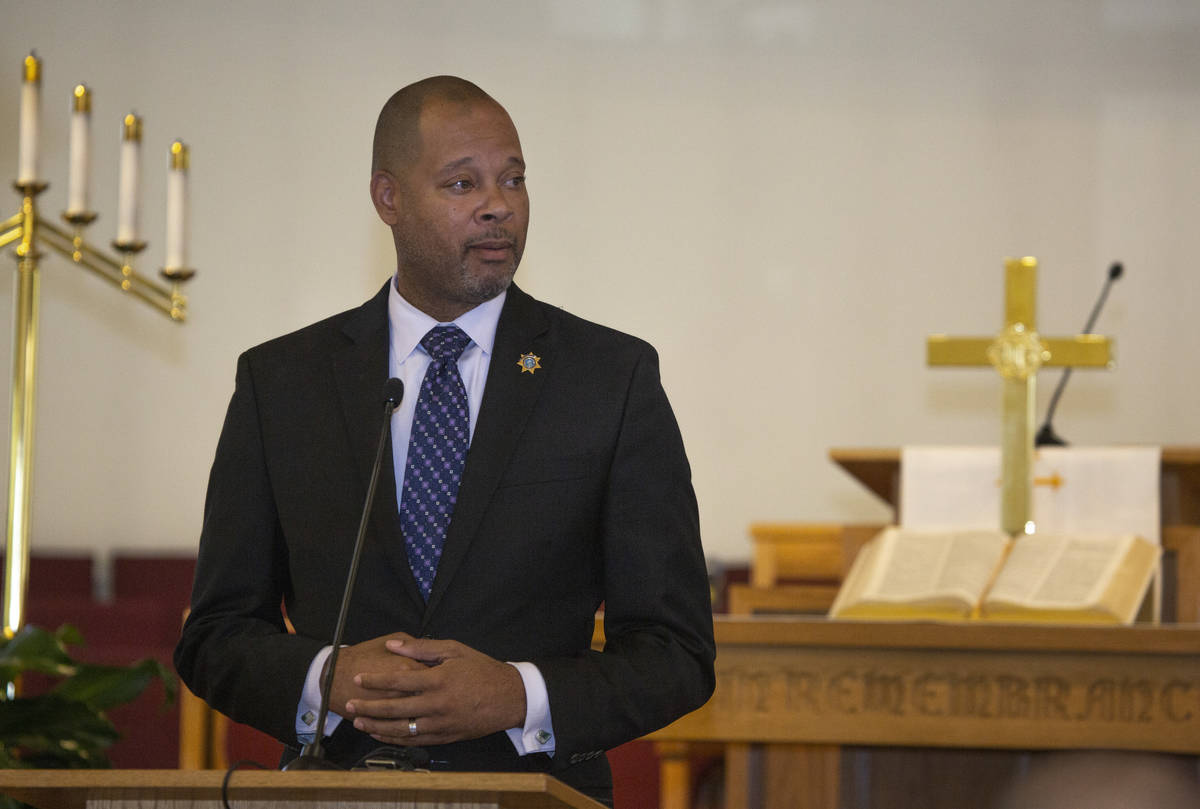Some landlords still locking out tenants amid Nevada eviction freeze
The statewide eviction moratorium Gov. Sisolak issued this week was meant to put a sweeping stop to lockouts, eviction notices and evictions for all Nevada renters — weekly or otherwise — amid the coronavirus pandemic.
At first, legal advocates said it was encouraging. Many co-signed a letter last week asking the governor for such an order, noting “clear guidance and protections from the state are desperately needed.”
But in practice, it’s apparently done little to slow “bad actors,” advocates say.
“Still, predatory landlords are harassing people at a record pace,” Bailey Bortolin, with the Nevada Coalition of Legal Service Providers, told the Las Vegas Review-Journal in an email this week. “Many are trying to creatively skirt the protection.”
Skirting the law
Throughout Clark County, a mix of properties advertise more than 8,000 rooms as rent-by-the-week, records show.
Heidi Foreman-Toney, a tenants’ rights counselor with Nevada Legal Services, said her phone is ringing “almost by the minute” with people “asking for advice to find out what their rights are” amid the statewide eviction moratorium.
“There’s just so many violations,” she told the Review-Journal. “You would think it were a movie.”
Some are still being served notices. Others are still being locked out. One woman this week said her landlord started stacking plywood in the parking lot, threatening to board up units for people who can’t pay rent, Foreman-Toney said.
Another man called to report that his landlord and some security guards this week tore out the toilet, refrigerator, television and bed in his unit to force him out when he could not make rent, Foreman-Toney said.
“Our people deserve better than that,” Foreman-Toney said. “They’re in the hospitality industry, so many of our clients. We’ve got seniors who’ve lived there for most of their life.”
“You hear about these things and expect that everyone will just follow the rules,” she said, “but there are illegal lockouts happening left and right.”
Strict penalties
Nevada landlords and property managers who defy the statewide eviction moratorium could be sued for deceptive trade practices, according to the state attorney general’s office, the enforcement arm of the governor’s statewide eviction moratorium.
Deceptive trade lawsuits can carry triple damages for each violation a court finds. But they are considered a last resort, Nevada Attorney General Aaron Ford’s office said, because Ford is first trying to work with landlords, property managers and their companies.
“While this directive is meant to help thousands of Nevadans in every corner of our State struggling to pay the bills, I’m also understanding to the fact that it puts a strain on property owners and businesses who must pay the bills,” according to a statement from his office.
Tenants can file complaints with the attorney general’s office at 888-434-9989 or ag.nv.gov. Staff are working to address each complaint within a day or two of filing, Ford’s office said.
Tenants may also reach out to Nevada Legal Services at Nevada Legal Services at 702-383-6095 or the Legal Aid Center of Southern Nevada at 702-386-1070 for guidance.
“In the midst of this emergency, when many tenants and homeowners are under duress, the Attorney General’s Office is highly concerned that any landlord or lender would violate the Governor’s Directive,” Ford’s office said.
Tenants who can still make rent are encouraged to pay it, since all tenants will be required to pay rent — missed or otherwise — once Nevada’s state of emergency is over and the moratorium is lifted.
“But this directive is meant to help businesses, individuals, and the public survive the pandemic by helping people stay in their homes and prevent further spread of this disease,” Ford’s office said.
Continued confusion
Charles Moorehead, whose situation as a weekly renter was profiled in the Review-Journal last week, said he is still getting little cooperation from property management at Siegel Suites Tropicana, where he said he has lived for several months.
Moorehead, 32, was recently laid off, which forced him to fall behind on rent as he looked for work while still caring for his wife, 33, who suffers from a rare neurological disorder. He now has the money to cover it, he said.
But even after Sisolak entered his order last Sunday, which banned late fees during the freeze, Moorehead claimed management still said he owed late fees. A few days later, Moorehead said management reversed course, but Moorehead claims they are now demanding a month’s worth of rent from him, which amounts to more than he would pay for four individual weeks of rent, and refusing to provide a printout breaking down that larger amount.
An on-site property manager did not return a request for comment.
Michael Crandall, senior vice president of The Siegel Group Nevada, said the company is not charging late fees and claimed that it is currently “impossible” in the company’s system, and that the company has not served any eviction notices since April 1.
“Siegel Suites are on the front lines doing everything we can to help our tenants and the community,” Crandall said. “Siegel Suites is 100 percent abiding by the governor’s emergency directive.”
Crandall also claimed Moorehead is not a registered tenant and that the unit Moorehead is living in is registered to a man named David Lloyd. Moorehead acknowledged that he and his wife previously lived with Lloyd for months and that property staff were aware of that, pointing to the seven-day eviction notice issued to his unit on March 19, which was addressed to “Lloyd, David, et al.”
When the Review-Journal reached Lloyd, he said Moorehead and his wife moved in November. They met through a mutual friend when the couple fell on hard times, and Lloyd agreed to let them stay there for a few weeks. But when the living situation seemed to work well, Lloyd said he told front office staff Moorehead was living in his unit, and they took Moorehead’s ID.
With Moorehead’s ID on file, Moorehead said he has been receiving mail through the main office for months, photos of which he showed the Review-Journal. Llloyd said he was the one to pay rent, but Moorehead would pay his portion to Lloyd.
In early March, Lloyd, 72, went to New York. He traveled there to be with his daughter, who was diagnosed with cancer, but he has not returned yet due to the state’s escalating coronavirus situation. Before he left, he said he told front desk staff that Moorehead would be paying rent in the interim.
“The maintenance people have been by,” Lloyd said. “All the (front desk staff) know he’s been there. He had his ID in months ago. Everyone knows he lives there.”
Lloyd said he understands Moorehead is now able to cover rent. But Moorehead is not receiving a breakdown of the charges front desk staff claim he owes, so he has not yet paid.
Crandall said any registered guest can receive a printout with a breakdown of charges. In a statement to the Review-Journal, he said, “We also want to point out that our managers, customer service representatives, maintenance and security personnel are on the front lines dealing with these issues.”
Moorehead said he plans to file a complaint with Ford’s office.
Contact Rachel Crosby at rcrosby@reviewjournal.com or 702-477-3801. Follow @rachelacrosby on Twitter.












































